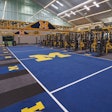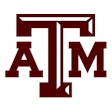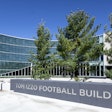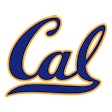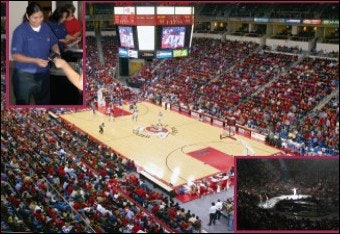
Marty Bechtold isn't one to leave his job at the office. In fact, it's rare that he's even home.
But there he was on May 26, watching the "American Idol" finale with his daughter, when Fox announced the six cities that will host auditions for the popular reality show's fourth season. Cleveland happened to be one of them. Bechtold's employer, Philadelphia-based arena management firm SMG, happens to handle booking for The Convocation Center at Cleveland State University. So much for a relaxing night in front of the tube.
"Before the show went to a commercial break, I was on the phone with my general manager in Cleveland. I wanted to make sure an e-mail was sent to the Fox affiliate in Cleveland so they knew first thing in the morning that Cleveland State wanted to host the auditions for next year's 'American Idol,' " recalls Bechtold, an SMG regional vice president. "I mean, this was happening between 9:45 and 11 at night."
Such is the level of commitment available to colleges and universities that choose to outsource their arena management to private firms. But bookings are only part of the picture. Other services include accounting, human resources, risk management, public relations, sales, marketing - even food and beverage. "There's no cookie-cutter approach," says Bechtold, who oversees all seven of the college-owned facilities managed by SMG. "Every account is different."
While the concept of privately managed arenas on public university campuses is decades old, the tangible benefits of such partnerships are becoming increasingly obvious. "It's the trend for institutions to look to maximize revenues," Bechtold says. "They look to us not only for best business practices on running the facility, but also to book their facility with outside events."
Private arena management firms often provide their most valuable assistance before ground is even broken on a new facility. "Universities are discovering that to plan an arena today, they really need a lot of outside help, not only from a design standpoint, but also in planning for operations and trying to maximize rental activity," says SMG vice president Joe Briglia. Adds Frank Russo, senior vice president of Global Spectrum, another Philadelphia-based arena management firm, with 10 collegiate clients: "We're not architects or builders. We are operators, so we look at design from a very practical point of view. Many of the facilities that we operate are university buildings with athletics as the prime tenant, but they also have a broader mandate to be public civic centers. They need to be programmatically capable of handling multiple types of events."
That means specifying seating bowls with retractable end-court risers to allow for the staging of concerts, tractor pulls and three-ring circuses. It means taking into account the positioning of a center-hung scoreboard, ensuring unobstructed sightlines to a concert stage from upper-level seats on the opposite end of the house. Absent these simple considerations, a collegiate facility can prove a hard sell when attempting to attract non-athletic events. "Instead of building a 9,000-seat basketball arena with 10,000 capacity for concerts, you're left with 7,000" sellable concert seats, Russo says. "And all of a sudden, the opportunity to host concerts and other programming is not available."
Facility calendars filled with empty dates can have indirect financial consequences as well, according to Russo. "You're competing for would-be events that create value in terms of naming rights, advertising signage and sponsorships, suites and club seats - all those sources of income that transcend the events and directly impact the bottom line," he says.
Back-of-the-house design considerations should include locating concessions stands along exterior walls to allow for venting, "and venting means you can fry and grill food, which generates aromas, which stimulates impulse buying, which increases your per capita revenue significantly over boiled hotdogs and warmed-over pizza," Russo says. That said, certain universities may have to brace themselves for facility revenue figures slightly lower than those generated by comparable civic arenas. For example, a school policy that prohibits alcohol service in private suites may lower the market value of those suites by thousands of dollars each.
In some cases, private management firms can help schools save money on arena equipment. According to Briglia, SMG purchased 11 basketball floors last year. "That gets us a good price, so we also offer some buying power for clients," he says. "Give us an FF&E budget on a new building, and we'll show you how we can save four or five times our fee on purchasing alone."
Once a facility's doors are open, a private management firm may dispatch as many as two dozen employees to work full time on a given campus, with part-time help called in as needed. Among the full-timers is a general manager, who likely maintains daily - or, when in pursuit of a booking, more frequent - contact with corporate headquarters. To what degree the corporate brand is visible on campus comes down to university preference. Often, management firm employees appear in campus and facility directories like any other university employee, with campus- or facility-specific phone extensions and e-mail addresses. Staff polo shirts may feature university and/or facility logos prominently at the breast, with mention of the management firm relegated to a sleeve. Likewise, letterhead and business cards typically represent client marks foremost, with perhaps a small corporate logo included at the bottom.
Save Mart Center at California State University, Fresno, includes a link to SMG on its web page. Callers are greeted with the message, "Welcome to Save Mart Center at Fresno State, an SMG-managed facility." One is even prompted to "press 4 for SMG."
On game day, management firm employees assume a peripheral role, deferring to university administrators and athletic department personnel in matters concerning officials, media and VIPs. "They have radio access to our people, who are serving more as security and perimeter control, to make sure that in case of an emergency we know how to evacuate," Russo says. "We wouldn't expect the university staff to do that."
Security is another important area in which private management firms can bring added expertise. Before the first anniversary of 9/11 had arrived, SMG contracted with the firm responsible for authoring the World Trade Center's evacuation plan following the 1993 bombing. "We run training seminars with our managers, and we've had threat assessments done at all of our facilities around the country," Briglia says.
With a combined 17 collegiate facilities managed by the industry's two major players, it's clear the overwhelming majority of schools still prefer to handle arena operations in-house. But they should at least be aware of the expertise that exists elsewhere. "If you're looking to test whether this may be a viable alternative, you need to talk to a management company to get a feeling for how much activity it can generate," Briglia says. "We all have to be able to pay for our fee and any overhead that we bring" via the booking of additional events.
Once the roster of end users begins to expand, private management firms assume one more important role: referee. Divvying up prime dates among collegiate athletic teams and outside attractions can be dicey. "Part of the talent that we bring to the table is our ability to say, 'Hey, look. We're sorry. You have to understand.' Those who complain don't have as much leverage over us as they might over someone within the university itself," Russo says. "One of the primary reasons that universities want private management is they need a third party to broker the fact that this building, even though it's a university facility, is a facility that is not at the whim and disposal of everyone on campus. There are rules, there are rates, there are scheduling procedures, and even athletics needs to work within a schedule."
Especially athletics. Fresno State basketball coaches would rather practice every day on their home floor at Save Mart Center, but according to John Kriebs, assistant athletic director for facilities and operations, the mere existence of the facility is worth the inconvenience from a recruiting standpoint. "It's the only show in the Valley," says Kriebs of the nine-month-old Save Mart Center, which might have been a no-show without its ability to attract non-athletic events. "Fresno State athletics has priority on dates, but it's also a tenant. And to make the economics of the building work, we have to go out and generate as much revenue as we can to pay off the debt service," says Save Mart Center general manager Steve Tadlock, an SMG employee. "It's a balancing act, but it works. It's a good model for universities who want to build a premier facility, but don't have a way to subsidize it."




















